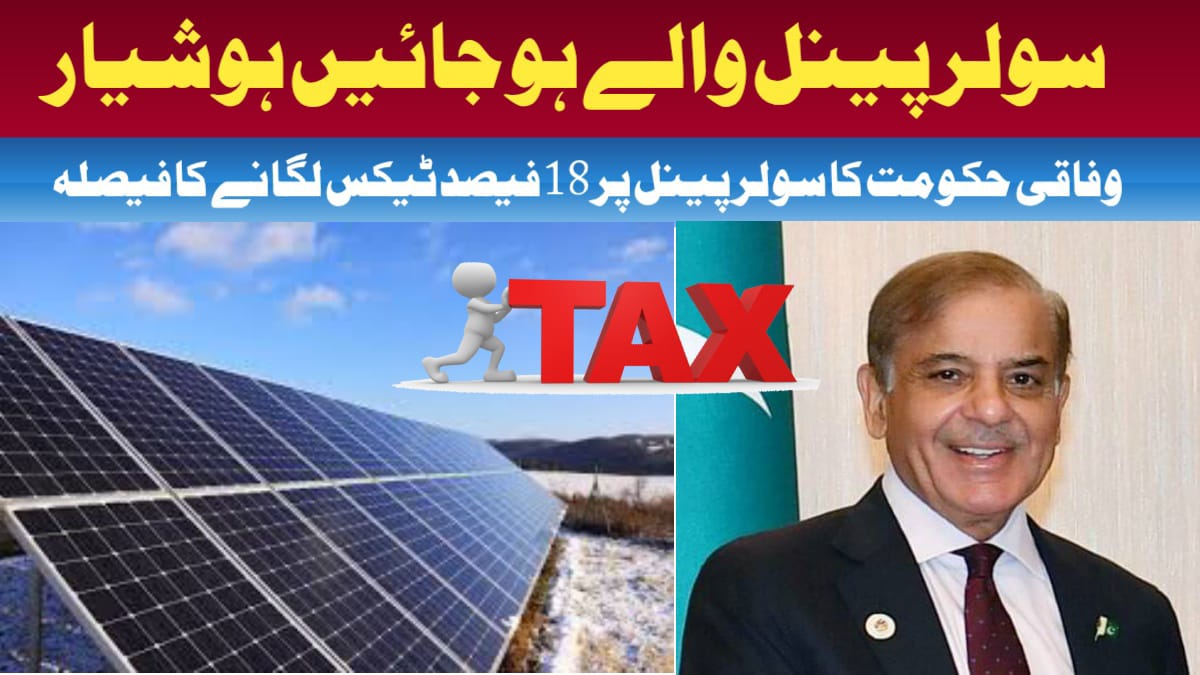Solar Panel Sales Tax in Pakistan Increased to 18% – What It Means for You
In a move that has sparked concern among consumers and environmentalists, the Government of Pakistan has increased the sales tax on solar panels to 18%. This decision is part of the latest budgetary measures for 2025 and is likely to impact the growing solar energy market in Pakistan. If you’re planning to invest in solar power for your home or business, understanding the solar panel sales tax and its implications is essential.
What Is the New Solar Panel Sales Tax in Pakistan?
The Federal Board of Revenue (FBR) has officially imposed an 18% general sales tax (GST) on the import and sale of solar panels across Pakistan. This is a sharp increase from the previously zero-rated tax status, which had helped promote renewable energy adoption.
Why Has the Tax on Solar Panels Increased?
The government justifies the new tax on solar panels as part of a broader tax reform aimed at increasing revenue. However, energy experts argue that this policy contradicts Pakistan’s commitment to clean energy and climate change mitigation.
Impact of Increased Tax on Solar Panels
-
Higher Installation Costs: With 18% added GST, the total cost of purchasing and installing solar systems will rise significantly.
-
Slower Adoption Rate: The affordability factor, once a major driver of solar adoption, is now under threat.
-
Burden on Residential Users: Homeowners who rely on solar for reduced electricity bills may now face longer return-on-investment periods.
-
Import Slowdown: Increased solar panel import duties may reduce the availability of quality equipment in the local market.
Industry Reaction
Many solar energy companies and renewable energy advocates have condemned the decision. They believe the solar panel sales tax will discourage green investments and negatively affect Pakistan’s goal of increasing renewable energy in its power mix.
What Can Consumers Do?
-
Act Quickly: If you’re planning to install solar panels, consider doing it before further price hikes.
-
Look for Tax Exemptions: Some provinces may introduce local subsidies or tax relief to counterbalance the federal GST.
-
Support Clean Energy Campaigns: Engage in petitions or advocacy campaigns demanding a reversal of the solar panel GST increase.
Conclusion
The increase in solar panel sales tax to 18% is a major setback for renewable energy progress in Pakistan. While the government may aim for short-term revenue, the long-term effects on energy independence, climate goals, and public affordability are significant. Consumers, policymakers, and stakeholders must work together to find a more balanced solution that supports clean energy without placing undue financial burdens on users.
FAQs About Solar Panel Tax in Pakistan
Q: What is the current sales tax on solar panels in Pakistan (2025)?
A: As of 2025, the sales tax has been increased to 18%.
Q: Are there any exemptions or reliefs available?
A: Currently, no federal exemptions exist, but provincial or local incentives may be introduced.
Q: Will solar panel prices increase due to this tax?
A: Yes, the 18% GST will directly raise the cost of solar systems for residential and commercial users.

